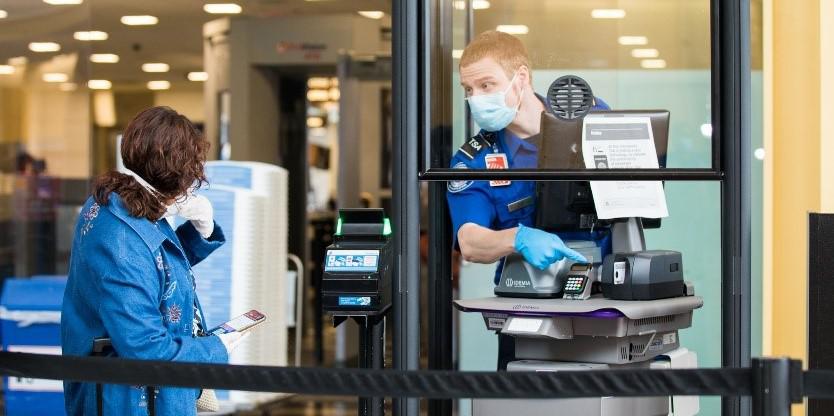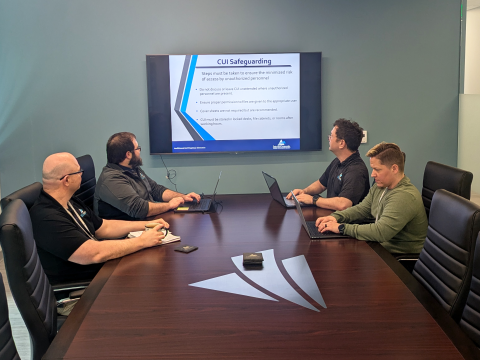Small Business Can Win Big
The Transportation Security Administration is in the market for small businesses that offer security technology. Because large companies quickly buy out a great deal of startups, the organization’s Small Business Programs office is looking at new ways to diversify this marketplace by facilitating investments.
Adequate funding is one of the biggest roadblocks for entrepreneurs who want to sell to government agencies as well as the tallest hurdle for the Transportation Security Administration’s (TSA’s) program to overcome. Many small businesses just don’t have sufficient capital to keep their doors open through the lengthy process between requests for information and contract awards.
To address this issue, Robert Boone said his organization has examined new approaches such as small business investment companies (SBIC). Boone, who is the director of small business programs at the TSA, offered his insights at the TSA Industry Day, which AFCEA assisted in presenting. The Small Business Administration manages the SBIC program.
“We did hit a roadblock trying to get those SBICs to get a better understanding of our TSA requirements, mainly because how long the acquisition process takes. From the time white papers are submitted, to building a box, to getting it through security tests and getting it to acceptance testing and so forth, it can take a number of years. A business will have to sustain that funding from the beginning to end. And only once we get there is there a competitive marketplace. So, I encourage more [small] businesses to explore some funding resources,” he stated.
Boone offered several other tips to companies interested in securing government contracts. “Oftentimes, we find small businesses … just spinning their wheels and they really can't figure out how to do business with an agency because each agency is both generic and specific as to how they maximize small business opportunities,” he related.
The Department of Homeland Security (DHS) offers the best insights into business opportunities, Boone advised. Through the small business section of the Do Business with DHS, his team offers expertise about how to compete for the department’s contracts.
The site includes information about small business vendor outreach sessions, which companies can sign up for online. “Currently, under COVID-19, we're doing these sessions virtually," Boone offered. “You can get appointments with the small business specialist, and you can brief your capabilities. We can talk a little bit about our components, so you'll get a better understanding. We do this monthly, and if you can't get an appointment, just try again the following month.”
In addition to setting up an outreach session from the website, Boone said companies can now view the contract opportunities information previously housed on the DHS’ acquisition planning forecast system (APFS) on the System for Award Management website. The system differs from other agencies’ procurement announcements online because the database is constantly updated. “You may go out there today and see a requirement that Coast Guard is advertising or FEMA or Secret Service, and tomorrow you may not see it, or you'll see others out there. We're adding and subtracting on a daily basis,” he explained.
“This is a forward-looking document. It features requirements the DHS is planning to solicit for the fiscal year. You'll see some requirements available for FY22. We look far in advance. It will give the NAICS [North American Industry Classification System] code of what the requirement is, an estimated dollar range and the point of contact of the end user. So, [with the] users’ contact information, if you have any questions on that requirement, you can reach out to them as well as always reach out to my office at the same time so we know that you're communicating with some of our program offices,” Boone advised.
In addition, the DHS’ strategic sourcing vehicles and best-in-class vehicles are available on the department’s website. It’s important for contractors to look at these contracting vehicles because they are mandatory for use, Boone pointed out. While there are always waivers and exceptions, right now waivers are rare; however, they are being approved because the items TSA must purchase do not fit for the vehicles especially as they relate to security technology equipment, he added.
He also recommended small companies visit the beta.SAM.gov website. “I encourage you to keep your ear to the ground and go out and look at those contractor vehicles,” Boone stated.
For additional insights into upcoming TSA contract awards, event registrants can view the TSA Industry Day on-demand videos online.





Comments